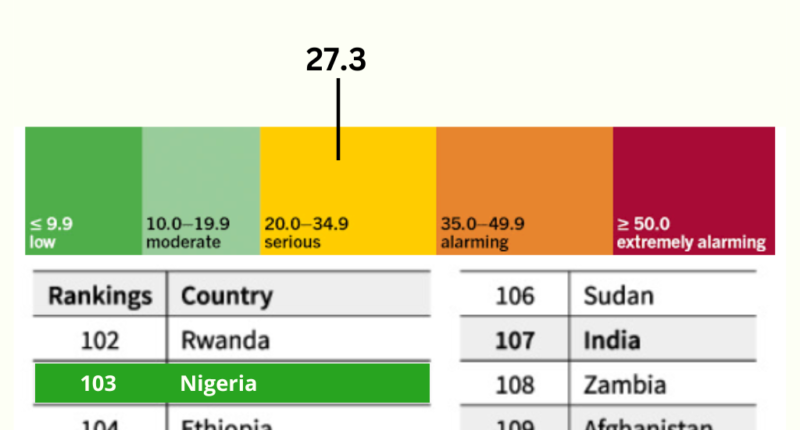Nigeria was placed 103rd out of 121 nations in the 2022 Global Hunger Index, indicating that the country has a serious food problem. Previously, Nigeria, Africa’s most populous country, was placed 103 out of 116 countries in 2021 and 98 out of 107 countries in 2020.”
Going further
The survey, which ranks countries by five levels: low, moderate, serious, alarming, and extremely alarming, gave Nigeria a score of 27.3, indicating a serious degree of hunger. Nigeria’s ranking on the scale has remained unchanged for the second year in a row. Nigeria.
A troubling analysis
According to the analysis, 828 million people worldwide were impacted by hunger in 2021, an increase of around 46 million people since 2020 and 150 million people since the COVID-19 pandemic epidemic. According to the index, the highest levels of hunger were found in Africa South of the Sahara, which is battling severe drought and South Asia, where progress against hunger has stalled in recent years.
Why?
Global issues like conflict, climate change, and the economic crisis are certain to worsen the situation. The Ukraine conflict has pushed global food, fuel, and fertilizer prices, perhaps contributing to food shortages in 2023 and beyond.
Going further
The report also predicts that by 2030, hundreds of millions of people will still be hungry, failing to fulfil the United Nations established targets. In March, the United Nations Food and Agriculture Organization anticipated that approximately 19.4 million people in Nigeria would face food insecurity between June and August of this year.
According to the report, around 14.4 million people, including 385,000 IDPs, were already facing a food crisis in 21 states and Abuja currently

